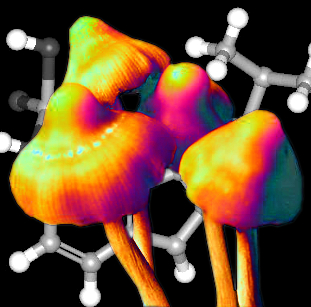Mushroom review shows needs
 Despite huge potential, psilocybin treatments remain poorly understood.
Despite huge potential, psilocybin treatments remain poorly understood.
Medicinal psilocybin may prove to be an untapped therapeutic resource for a variety of psychiatric conditions identified by researchers at The Florey.
Researchers have systematically reviewed 34 preclinical scientific papers published since 2000 to help shape the future direction of psilocybin research.
“Psilocybin shows the greatest efficacy for mood disorders such as depression and anxiety. It also shows exciting therapeutic potential for obsessive compulsive disorder, addiction, and fear-related disorders such as post-traumatic stress disorder and phobias,” says lead author James Gattuso.
“Psilocybin has been found to be as safe if not safer than ketamine, which is FDA-approved for treatment-resistant depression. However, when taken recreationally, psilocybin is not only illegal but can carry significant health risks and concerns particularly for people with existing mental health conditions.”
The Florey researchers suggest exploring psilocybin's impact on the gut-brain axis and its hallucinogenic properties versus other physiological factors.
They also advocate using genetically-engineered animal models to understand the interaction between genes, environment, and behaviour.
The Therapeutic Goods Administration in Australia reclassified psilocybin in July last year, permitting its prescription for treatment-resistant depression. This aligns with the American Food and Drug Administration's designation of psilocybin as a “breakthrough therapy”.
Complementing these findings, US studies report that a single dose of psilocybin, combined with psychological support, can reduce symptoms of depression and anorexia nervosa. Further supporting psilocybin's potential, Harvard research associates its use with a lower risk of opioid addiction. However, the causality between psilocybin use and reduced addiction risk remains to be established.
In Australia, CSIRO is spearheading efforts to develop new psychedelics for treating mental health issues. This initiative reflects a growing interest in psychedelics like MDMA and psilocybin, which have shown promising results in controlled clinical settings.
These unfolding discoveries underscore the urgent need for more extensive research to unlock the full therapeutic spectrum of psilocybin and related psychedelics, offering new hope for the one in five Australians grappling with mental illness annually.








 Print
Print